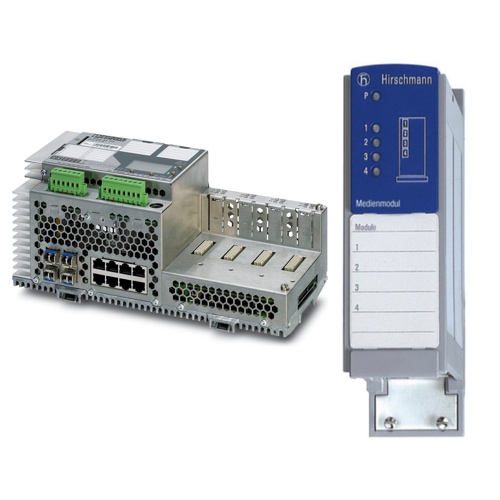Modular Switches

Modular Ethernet switches are designed to support flexible and scalable network architectures in industrial and enterprise environments. These switches centralize communication between connected devices such as computers, servers, IoT equipment, and wireless access points while intelligently directing data packets only to their intended destinations. This targeted traffic management improves network efficiency, reduces congestion, and enhances overall security.
Unlike fixed-configuration switches, modular switches allow expansion modules to be added or replaced as network requirements evolve. This modularity makes them well-suited for applications where port density, media type, or bandwidth demands may change over time. Many industrial modular switches are built to operate reliably in harsh conditions, offering rugged housings, extended temperature ranges, and support for industrial Ethernet protocols.
RSP Supply offers modular switch solutions from trusted manufacturers such as Phoenix Contact and Hirschmann. Phoenix Contact 2000 Series managed switches support standard Ethernet and PROFINET networks, with compact designs optimized for flat control cabinets and challenging environments. Hirschmann MSP modular switches provide advanced flexibility with high-speed port options up to 10 Gb/s, hot-swappable media modules, and optional Layer 3 functionality for dynamic routing applications.
FAQs
Q: What is a modular Ethernet switch?
A modular Ethernet switch is a network switch that allows users to add, remove, or change port modules as needed, enabling scalable and customizable network configurations.
Q: How does a modular switch differ from a fixed configuration switch?
Fixed configuration switches have a set number of ports that cannot be changed, while modular switches support expansion modules that allow the network to grow or adapt without replacing the entire switch.
Q: Should I choose a managed or unmanaged modular switch?
Managed modular switches allow configuration, monitoring, and control of network traffic, making them suitable for complex or critical networks. Unmanaged switches provide basic connectivity without configuration capabilities.
Q: When is Power over Ethernet (PoE) required?
PoE is required when connected devices—such as IP cameras, access points, or sensors—need power delivered through the Ethernet cable instead of a separate power source.
Q: What data speeds should be considered when selecting a modular switch?
Common Ethernet speeds include Fast Ethernet (up to 100 Mbps) and Gigabit Ethernet (up to 1 Gbps). Higher data volumes or performance-critical applications may require Gigabit or multi-gigabit capabilities.y/type.
Why Buy Modular Switches for Customizable Network Solutions from RSP Supply
RSP Supply provides a carefully selected range of modular Ethernet switches built for reliability, flexibility, and long-term performance in industrial and enterprise networks. Our offerings support evolving connectivity requirements through scalable designs, advanced management features, and compatibility with high-speed and industrial Ethernet standards. Customers rely on RSP Supply for knowledgeable technical support and dependable networking components designed to perform in demanding environments.


